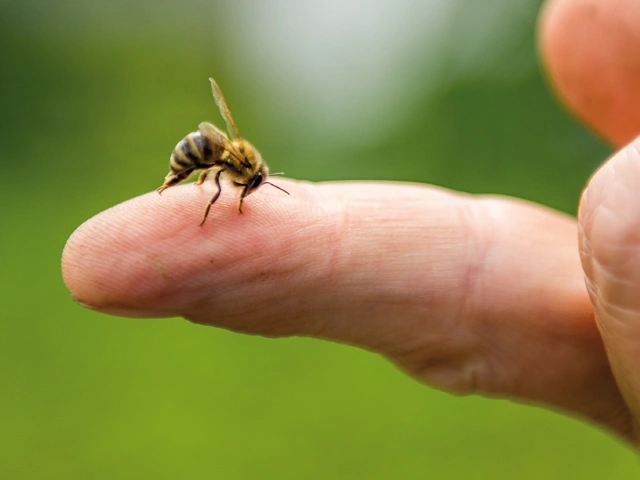Insects are often annoying companions on warm summer evenings. But
what can you do to avoid getting stung?
Here are some tips for you:
- Move calmly around bees or wasps
- Never swat at bees or wasps!
-
Avoid perfumes, essential oils, scented creams or lotions on the
skin
- Sweat and leather odors increase the likelihood of stings
- Wear light-colored clothing
-
Don’t eat bananas or other fruits near bees, wasps, or hornets —
they contain substances that insects mistake for alarm pheromones,
increasing their tendency to sting
- Never drink from a tinted bottle that’s been left outdoors
- Always cover drinks outdoors, especially sugary ones
-
Use insect repellents — either chemical or natural (lemon
eucalyptus works particularly well)
-
Be especially cautious in hot, humid weather with high air
pressure
However, stings can’t always be avoided. If it does happen, it’s
usually no reason to panic. To make the sting more bearable and help
it heal faster, you can try the following:
- Quark compresses
- Ice cubes for cooling and reducing inflammation
- Tea tree oil for disinfecting and anti-inflammatory effect
-
For long-term immunological treatment, oral desensitization with
autologous blood or urine and autologous blood injections may help
IMPORTANT
Be especially careful with stings in the ENT/throat area! There is a
risk of breathing difficulty or even suffocation! Act quickly and
carefully:
- Keep the upper body upright
- Suck on ice cubes and apply them to the affected area
- Gargle with ice water
- Apply cold externally and give arnica
- Place ice packs around the neck
- Do not drink anything!
- Call emergency services
Allergy sufferers should also — as mentioned in Part 1 of our insect
sting series — carry an emergency kit containing antihistamines,
cortisone, and adrenaline.
Beware of Insect Stings: When They Can Be Dangerous
July 24, 2019


